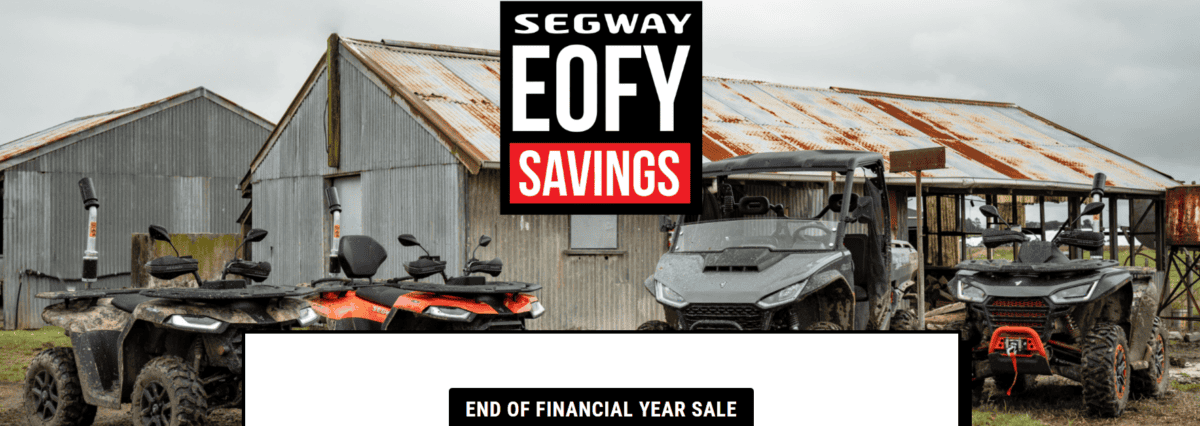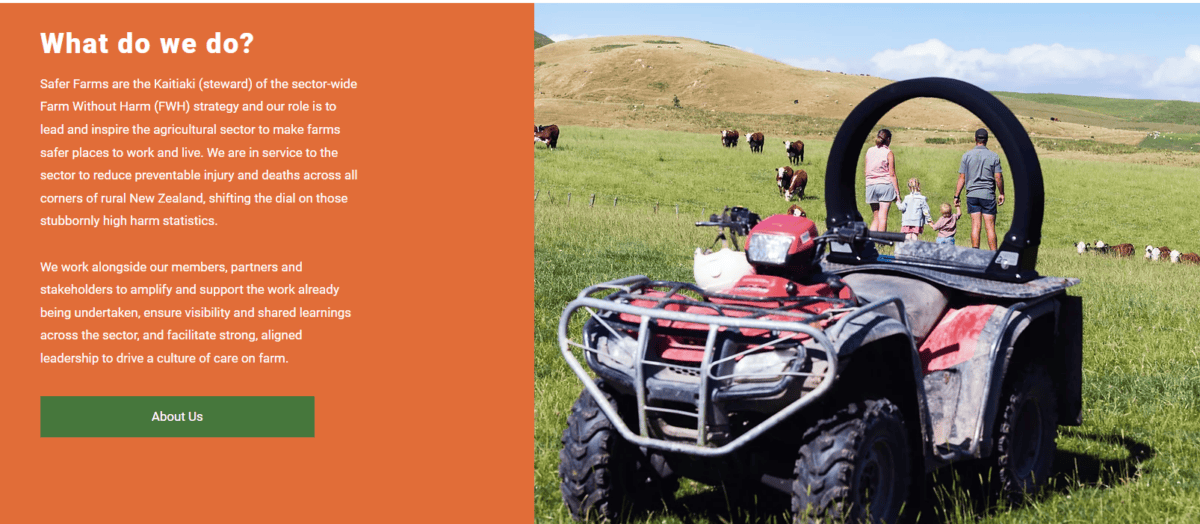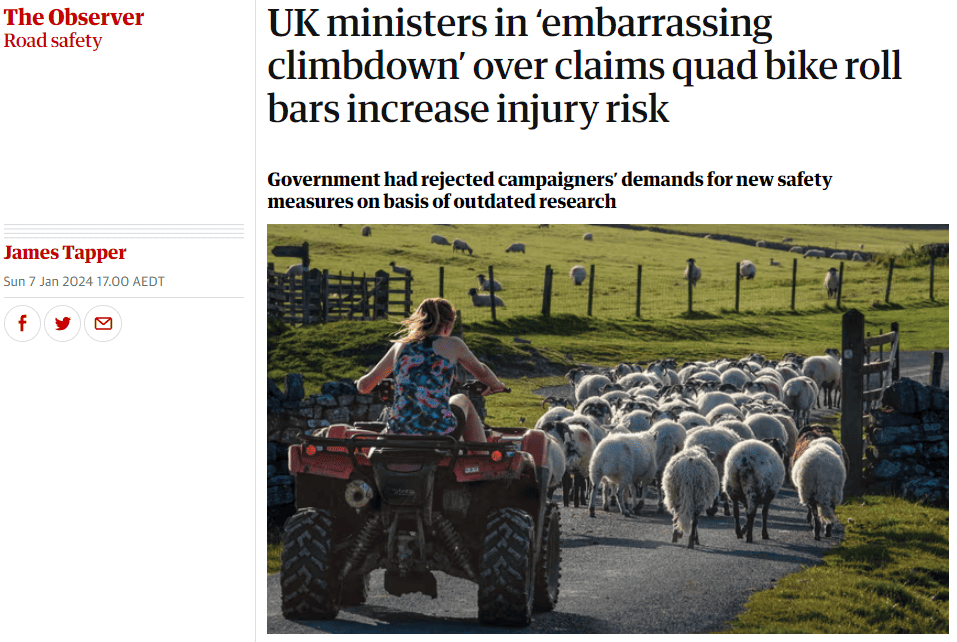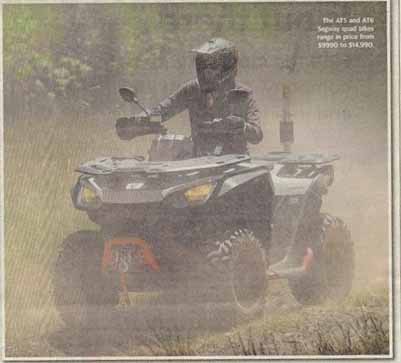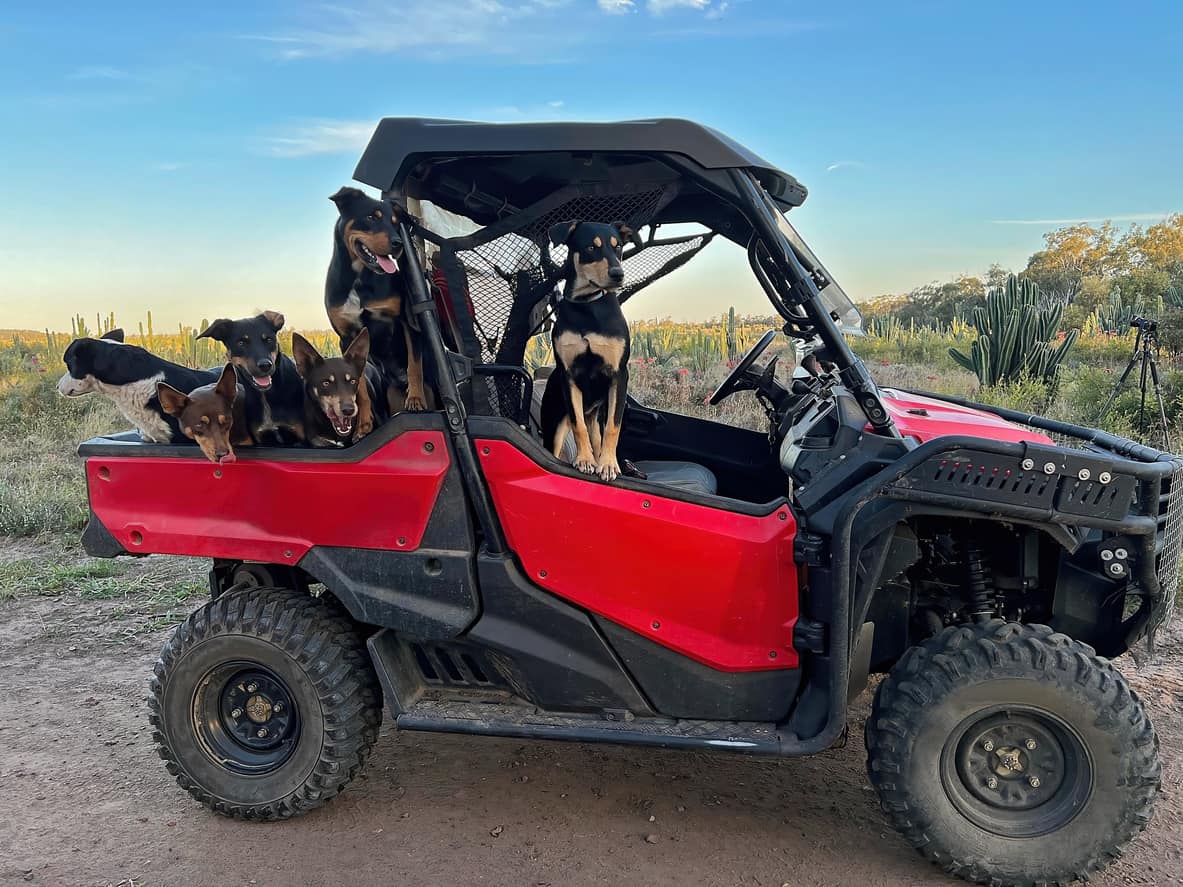It is reasonable to claim that the quad bike safety controversy has been resolved in Australia through the intervention of the Australian Competition and Consumer Commission (ACCC) and the imposition of a national safety standard. However, the occupational health and safety (OHS) message continues to be murkier than necessary when quad bikes are advertised in some of the agricultural media without critical safety devices.
Category: quad bike
Farm Safety group video shows unclear position on quad bike safety
Farming is a unique industry with significant occupational health and safety (OHS) challenges; it is unique because it is a blend of rural culture, working at home often with children in the workplace, isolation from social services, self-reliance and independence. It is important for the OHS advice provided and promoted to offer the most effective health and safety advice. Many farming organisations provide this information and do it well. New Zealand’s Safer Farms appears to have good intentions but may have missed the mark with their latest video.
Work (re)design needs government subsidies to succeed
Last week, SafeWork New South Wales progressed the management of psychosocial hazards at work with the release of its Designing Work to Manage Psychosocial Risks guidance. This document has been a long time coming and offers significant advice on how work and people management needs to change in order to prevent psychosocial hazards. However, its implementation is likely to generate considerable opposition and confusion, or even organisational shock, if it is not able to convince employers of increased profitability and productivity from making the change.
Quad Bike safety? It’s the UK’s turn
A recent article in The Observer illustrates just how far behind Australia the United Kingdom is on requiring the installation of crush protection devices on quad bikes. It is also surprising that the UK’s Health and Safety Executive (HSE) is not just relying on independent Australian research into quad bike rollovers. The vehicles are the same makes and models, the terrain is similar, and the risk is the same …??
The normalisation of quad bike safety
Segway has made a push into the Australian quad bike market, helping to fill the gap left by some vehicle manufacturers who would not accept safety improvements to their quad bikes. Prominent Australian agricultural newspaper, The Weekly Times, reviewed the latest Segway quad bike models. Rider safety was not mentioned specifically in the review, but it was visibly present in the accompanying image and reinforced by Segway’s video media relelase.
No one seems to know why farm deaths have declined
This week’s Weekly Times, a major Australian agriculture newspaper, is reporting the good news that work-related deaths on farms have declined (not available online). The numbers from Safe Work Australia are positive, but the analysis of the reasons for the decline is thin.
Australia is the first nation to ban engineered stone due to worker health concerns
The heads of Australian work health and safety authorities have decided to ban engineered stone from the middle of 2024. Some will seed this as a win for the trade union movement ( the unions certainly will), but many occupational health and safety and industrial hygiene professionals have been leading the way in obtaining the research evidence that made this decision such an easy one to make.

